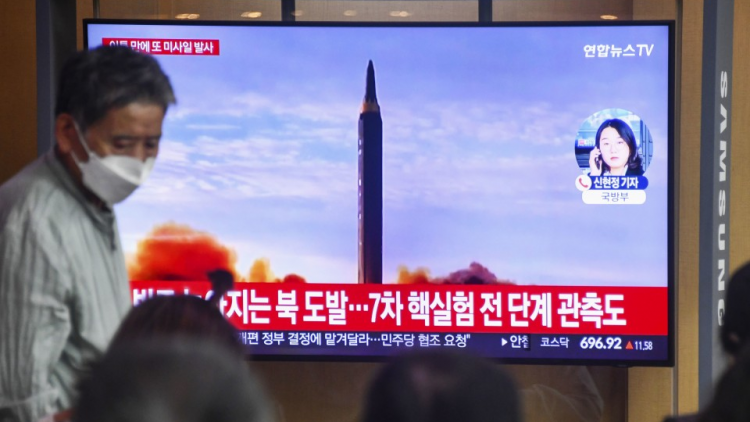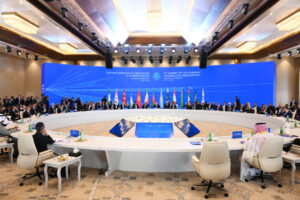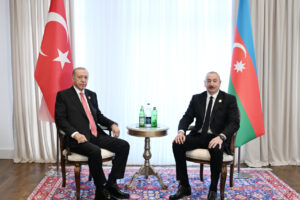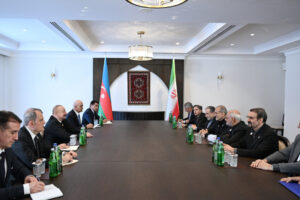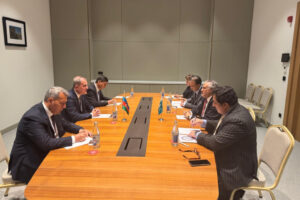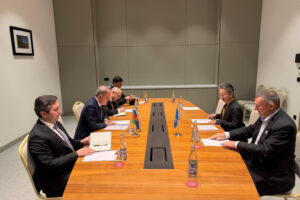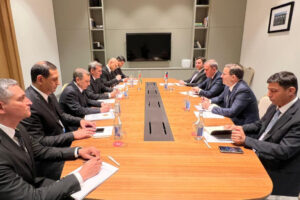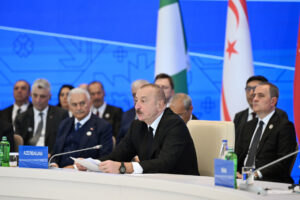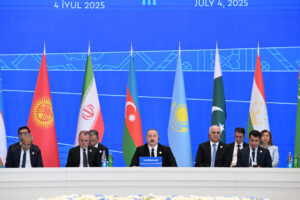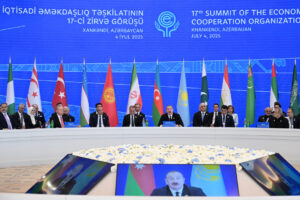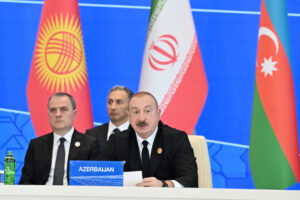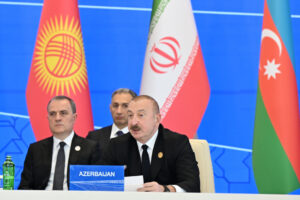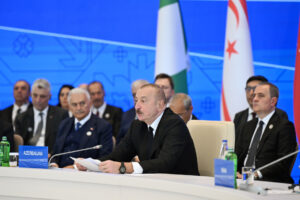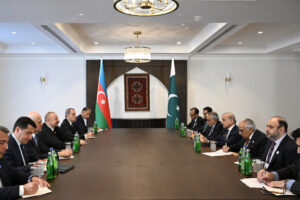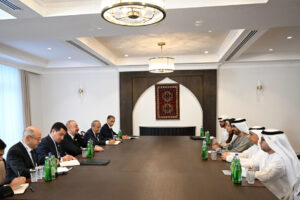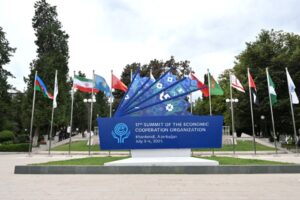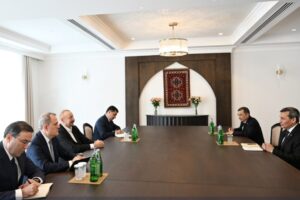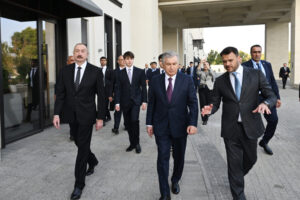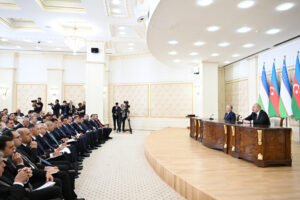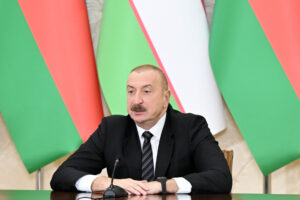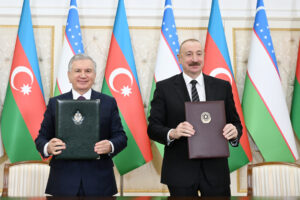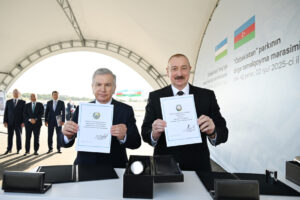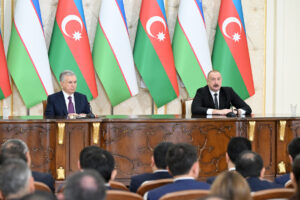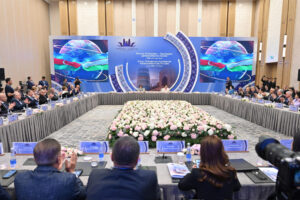Tokyo, 6 October, /AJMEDIA/
North Korea fired two ballistic missiles early Thursday from near Pyongyang toward the Sea of Japan, the sixth round of launches by the North since late September, the Japanese government and the South Korean military said.
The projectiles fell outside Japan’s exclusive economic zone and flew between 350 and 800 kilometers at a maximum altitude of 50 to 100 km, Defense Minister Yasukazu Hamada told reporters, adding there were no reports of damage to Japanese aircraft and ships.
South Korea’s Joint Chiefs of Staff said two short-range ballistic missiles were launched near the Samsok area in Pyongyang between 6:01 a.m. and 6:23 a.m.
The JCS said the first one flew about 350 km while reaching an altitude of about 80 km at a speed of about Mach 5 and the second one flew about 800 km at an altitude of about 60 km at a speed of around Mach 6.
Speaking to reporters, Japanese Prime Minister Fumio Kishida slammed North Korea’s repeated firings of missiles over a short span of time as “absolutely unacceptable.” Tokyo lodged a protest with North Korea through its embassy in Beijing, Hamada said.
The launches came just two days after Pyongyang fired a ballistic missile over the Japanese archipelago for the first time in five years, on the heels of joint military drills conducted by South Korea and the United States.
The U.S. State Department also condemned the missile tests, saying North Korea’s launches were in violation of U.N. Security Council resolutions and posed “a threat” to neighbors and the international community.
While reiterating its call for Pyongyang to engage in dialogue, a department spokesperson said in a statement that U.S. commitments to the defense of Japan and South Korea remained “ironclad.”
On Wednesday, the U.S. nuclear-powered aircraft carrier Ronald Reagan was redeployed to the Sea of Japan reportedly for a joint drill, just days after participating in an exercise involving the United States, South Korea and Japan in the waters.
North Korea’s Foreign Ministry issued a statement on Thursday saying it “strongly condemns” the United States and other countries for referring Tuesday’s ballistic missile launch to the U.N. Security Council, state-run media reported.
The ministry said Tuesday’s launch was part of “just counteraction measures” in response to the U.S.-South Korea drills that were “escalating the military tensions” on the Korean Peninsula, according to the official Korean Central News Agency.
As for the redeployment of the U.S. aircraft carrier, North Korea was “watching the U.S. posing serious threat to the stability of the situation” on the Korean Peninsula and its vicinity, the report said.
The U.S. 7th Fleet said Wednesday that the Ronald Reagan is operating in the Sea of Japan. The carrier’s home port is Yokosuka, near Tokyo.
Thursday’s launches marked the sixth round of firings since Sept. 25. The missile on Tuesday covered the longest distance ever for a launch by Pyongyang.
Since the start of the year, North Korea has conducted more than 20 rounds of ballistic missile tests in violation of Security Council resolutions.
On Wednesday, the Security Council failed to take unified action on the North Korean missile launch over Japan, with China and Russia criticizing the joint military drill conducted by the United States, South Korea and Japan.
The three countries held an anti-submarine exercise last Friday in the Sea of Japan for the first time in five years.
In New York, Japanese Ambassador to the United Nations Kimihiro Ishikane said Thursday’s missile launches showed Pyongyang was “taking advantage of inaction of the U.N. Security Council.”
In May, China and Russia vetoed a Security Council resolution drafted by the United States seeking to impose tougher sanctions on North Korea following its ballistic missile tests this year.
It was the first rejection of a Security Council resolution aimed at preventing North Korea from developing nuclear weapons and missiles since 2006, when the first sanctions were adopted.

